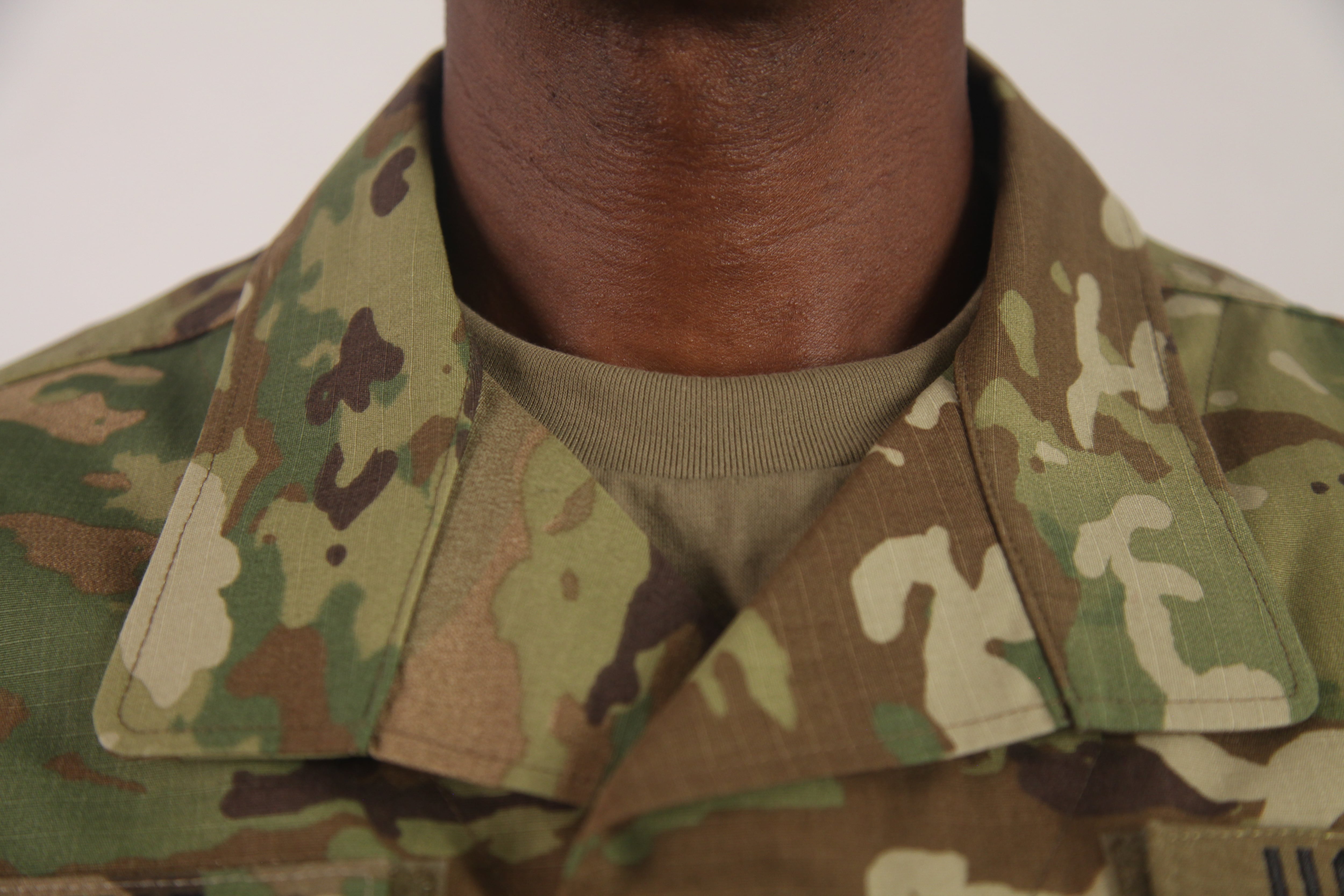As soldiers are now buying the new Army Combat Uniform and taking it home, they may be reading the washing instructions (or not) and seeing there are several dos and don'ts to keep it in good condition.
Some common laundry practices are no-no's. They can fade colors or strip materials of insect-repellent properties.
And then there are myths, circulated by soldiers and posted online, that aren't supported by science or the Army.
Cold water, hold the softener. The ACU label recommends using cold-water detergent in cold water, and never twisting or wring-drying, or hanging the ACU in direct sunlight. Also, stay away from bleach and bleach alternatives, which can lighten the colors from the palette the Army designed to conceal you.
ACUs without permethrin can be special ordered by women who are or plan to be pregnant. Hulett said that's precautionary. The Environmental Protection Agency says studies have found no evidence that the synthetic chemical affects pregnancy outcomes. The EPA labels permethrin a "weak carcinogen" when orally ingested, and estimates a 1-in-a-million cancer risk from wearing clothes treated with it.
Washing the ACU won't be much different from laundering your old uniform, Hulett said. If what you have been doing works (and you haven't noticed colors fading or insects bugging you) you can keep your uniform laundering habits.
No dry cleaning, starch. Some soldiers might want to go the extra mile to make that ACU look good. Starching or dry cleaning the uniform will do damage, though.
Dry cleaning chemicals will demolish the permethrin's protection even quicker than fabric softener will.
Also, substantial heat is used to set starch, but that can destroy hook-and-loop material, aka Velcro. The new ACUs contain less Velcro, and buttons and zippers have replaced much of the it, but there's still some Velcro to hold on unit badges, for example.
The ACUs have anti-wrinkle treatment, so efforts to starch and press modern ACUs constitute "overkill," Hulett said.
"Optical enhancers." The biggest myth about ACU care revolves around optical enhancers or optical brighteners, which older ACU labels used to warn against. These enhancers exist in a number of laundry detergents, and several websites say using them will make the uniforms more visible to detection. In particular, pictures purport to show that such detergents make the uniform pop more under a black light.
The Army tested the theory extensively, Hulett said, and found zero evidence that such detergents made clothes any easier to spot by any military sensors soldiers would likely encounter.
"The testing was conducted through Natick labs, and proved with many different detergents under many different conditions after several launderings that the optical enhancers had no effect on visibility, on increasing or decreasing IR visibility," Hulett said. "For our purposes, under test conditions for field use, there is no impact."
Soldiers can basically use any commercially available laundry detergents that don't have bleach or bleach alternatives, Hulett said.
Wash with like-colors. This goes along with conventional laundry wisdom: You might get away with washing an ACU with other clothes, but if you don't want to risk other colors "bleeding" onto your ACUs when a new coat-and-trouser set will cost about $90.
"You don't wash your red shirt with white sheets," said Hulett, who recommended standard laundry fixes for stains like pre-treating with standard detergent and soaking the material.
The label recommends not washing ACUs with any other garments, but says it may be washed with other garments in military field operations.
Hold the petroleum. That replacement price tag may encourage soldiers to try just about anything to blot out a stain. Just stop short of petroleum-based grease-removers like acetone and turpentine.
FRACUs, by name and design, resist flames. Working in an accelerant-like petroleum product to work out a blemish tends to defeat that purpose. And non-FRACUs, well, it's not like you want to add a reason for them to catch fire either.
"We've heard of some troops using certain brands of automotive degreasers," Hulett said. "Not a good thing, because that petroleum base has an effect on the uniform…You defeat the purpose of having a fire-resistant uniform."





